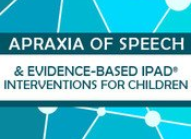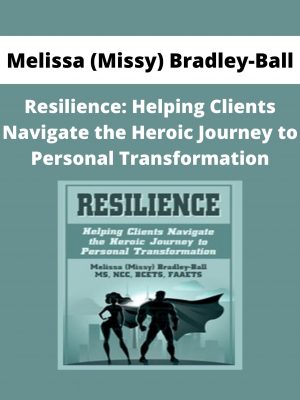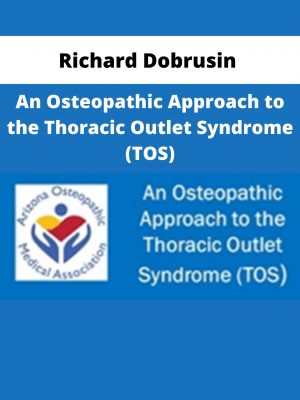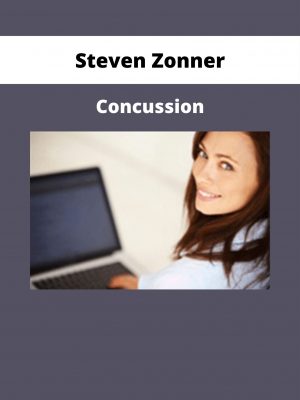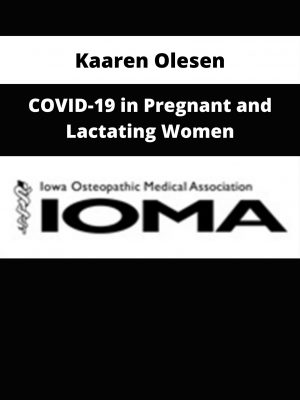Amy Skinder-Meredith – Apraxia of Speech & Evidence-Based iPad Interventions for Children
$149 Original price was: $149.$42Current price is: $42.
Shopping Instructions:
- DISCOUNT 15% : SHOP15
- Product Delivery: Within 1 – 12 hours after purchase.
Available for Pre-Order. This product will be available within a few days.
Amy Skinder-Meredith – Apraxia of Speech & Evidence-Based iPad Interventions for Children
Are you challenged with how to diagnose and/or treat Childhood Apraxia of Speech (CAS)? Or are you already working with children who have CAS?
There are many characteristics of Apraxia of Speech… and some that can also be signs of Dysarthria. This can make diagnosis confusing and may lead to misinformed treatment, creating a lack of progress in a child’s development.
That’s why we’ve created this online course for therapist like you who are looking to advance their knowledge and skills. You will learn effective assessment techniques that will allow you to be more confident in your diagnosis… gain guidance with careful observation techniques pertinent to differential diagnosis and determining the relative contribution of various factors to the child’s communication disorder.
Get the knowledge you need to make lasting change for the children you work with…
Through video case examples, demonstrations and evidence-based iPad® interventions, you will learn the assessment and treatment strategies you need to successfully treat Childhood Apraxia of Speech. Not only will you learn to improve speech and language, but you’ll also explore fun ways to incorporate speech therapy in a way that also promotes positive self-esteem. Walk away with advanced techniques to:
- Differentiate diagnosis of apraxia of speech from dysarthria, and other speech delays
- Implement rewarding and functional motor learning principals
- Develop a complimentary action plan using Apps individualized for students
- Incorporate phonemic and phonological awareness into motor speech therapy
- Create engaging and effective teaching approaches for all learners and professionals
Create powerful connections with your clients, teachers, parents and caregivers with the knowledge and skills you’ll gain from this online course!
You will learn effective assessment techniques to ensure you’re more confident in your diagnosis. Get the techniques you need to begin effective treatment and provide ongoing results!
- Dive deep into the three main key characteristics of CAS.
- Differentially diagnose apraxia of speech from phonologic delay, dysarthria, and other communication disorders.
- Explore motor learning principles and how they apply to treatment of children with CAS.
- Implement treatment for children with CAS using Dynamic Tactile and Temporal Cuing.
- Incorporate phonemic and phonological awareness into motor speech therapy.
- Learn how to adapt curriculum materials for children who are unintelligible.
Walk away with the knowledge to identify CAS and develop therapeutic interventions you can begin using immediately.
Create powerful connections using Apps that provide data-tracking, printing and emailing capabilities. Explore a variety of techniques that encourage children to participate in a fun and engaging way.
- Discover the key educational and field-specific impacts of the iPad®.
- Assess various iPad® applications using an Application Rubric.
- Explore the use of iPad® applications for specific speech-language pathology disorder categories.
- Design effective teaching approaches for all learners and professionals.
- Access evidence to support use of iPad® applications.
- Uncover the key essentials of the iPad®, related peripherals, and the process for managing Apps.
Would you like to receive Amy Skinder-Meredith – Apraxia of Speech & Evidence-Based iPad Interventions for Children ?
Amy Skinder-Meredith, Ph.D., CCC-SLP, received her doctorate from the University of Washington and her M.S. from the University of Arizona. She is an associate clinical professor at Washington State University in Spokane. She is an experienced clinician who has worked in the public school, hospital, and private practice settings. Her primary clinical and research interest is in children with motor speech disorders, and she has published and presented her research on childhood apraxia of speech (CAS) at national conferences. She is investigating the phonological awareness and early reading skills of children with CAS and developing treatment efficacy studies for various CAS treatment techniques Dr. Skinder-Meredith has given numerous workshops for practicing speech-language pathologists across the country on assessment and treatment of CAS.
Shannon Collins, MA, CCC-SLP, is a Clinical Assistant Professor in the Department of Communication Sciences and Disorders at the University of Wisconsin—Eau Claire. She completed her baccalaureate degree at the UW-River Falls in communication disorders and her master’s degree at Washington State University in speech and hearing sciences.
Before joining the department in 2001, Ms. Collins worked as a public school SLP in Washington and Texas and as a classroom teacher for a multi-handicapped program in Michigan. She provides supervision of graduate and undergraduate clinicians on and off campus and teaches the undergraduate clinical seminar and the “Introduction to CSD” course.
Angie Sterling-Orth, MS, CCC-SLP, is a Clinical Assistant Professor and the Director of Clinical Programs and Services at University of Wisconsin—Eau Claire. She completed both her baccalaureate and her master’s degree in communication disorders at UW-Eau Claire. Before joining the department 2002, Ms. Sterling-Orth worked as a public school speech-language pathologist in Wisconsin and then in product development for Thinking Publications in Eau Claire, WI, editing and co-authoring assessment and intervention resources. She has particular interest in using technology to work with children of all ages with communication, language, and learning needs. Ms. Sterling-Orth currently provides supervision of graduate and undergraduate clinicians both on-and off-campus. In addition, she teaches coursework in aural rehabilitation, grad essentials, developmental language disorders, and school methods in CSD.
Interact and collaborate with other professionals in the online community through chat boards and online forums. Participants love sharing ideas, asking questions and networking with other practitioners!
Complete your CE tests online at the completion of each module, with instant access to your CE certificates – up to 12 CE hours.
Related products
HEALTH & MEDICAL
KettleWorX – 8 Week Rapid Evolution Advanced Set with Alex Isaly
HEALTH & MEDICAL
HEALTH & MEDICAL
Regina Meredith – Conscious Media Network with Regina Meredith – Eric Pearl on The Reconnection
HEALTH & MEDICAL
HEALTH & MEDICAL
HEALTH & MEDICAL
Dr. J.E. Williams & Kevin Gianni – How to Read Your Blood Tests
HEALTH & MEDICAL



